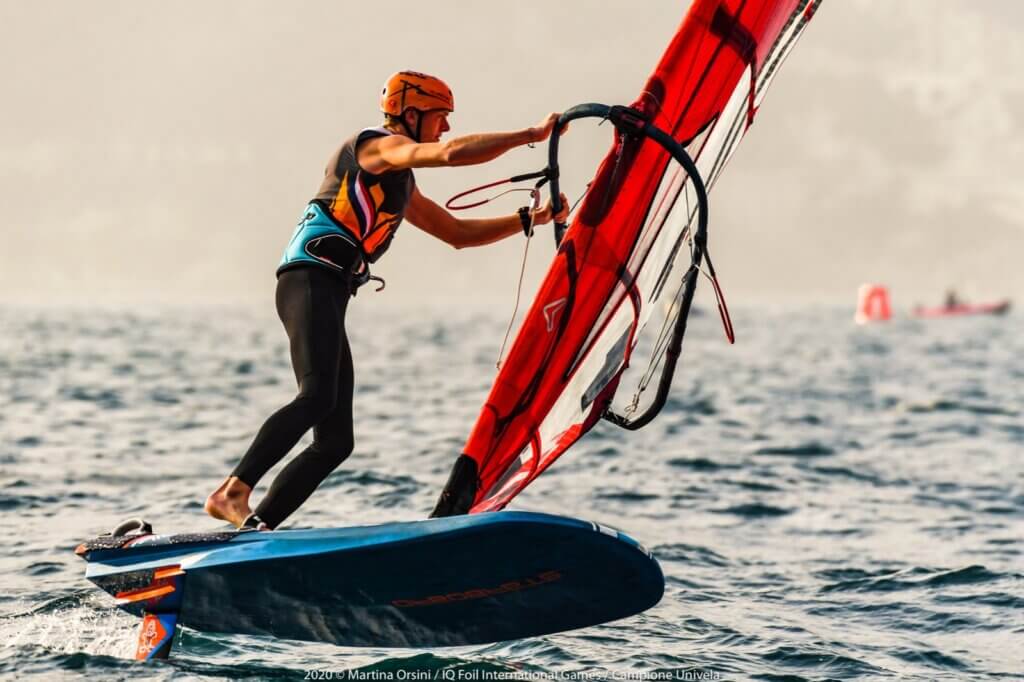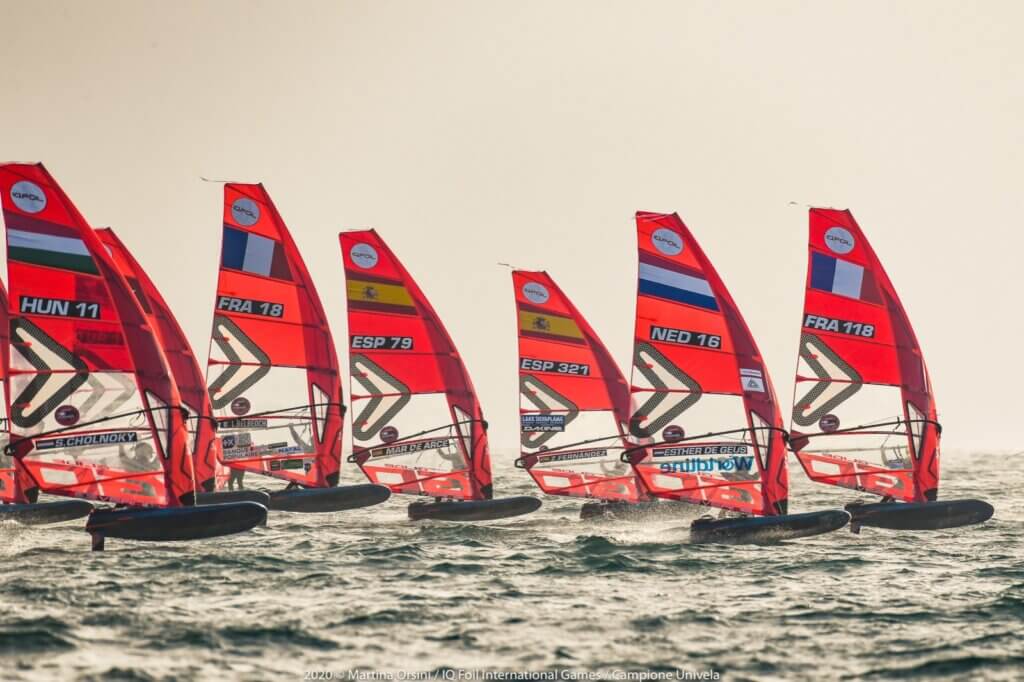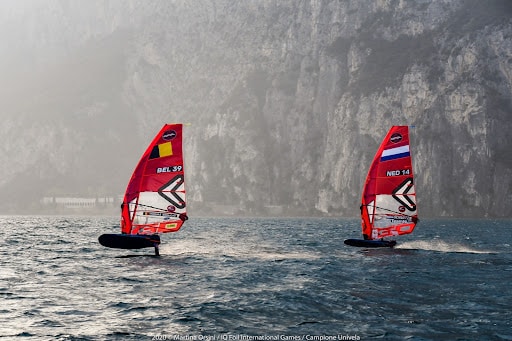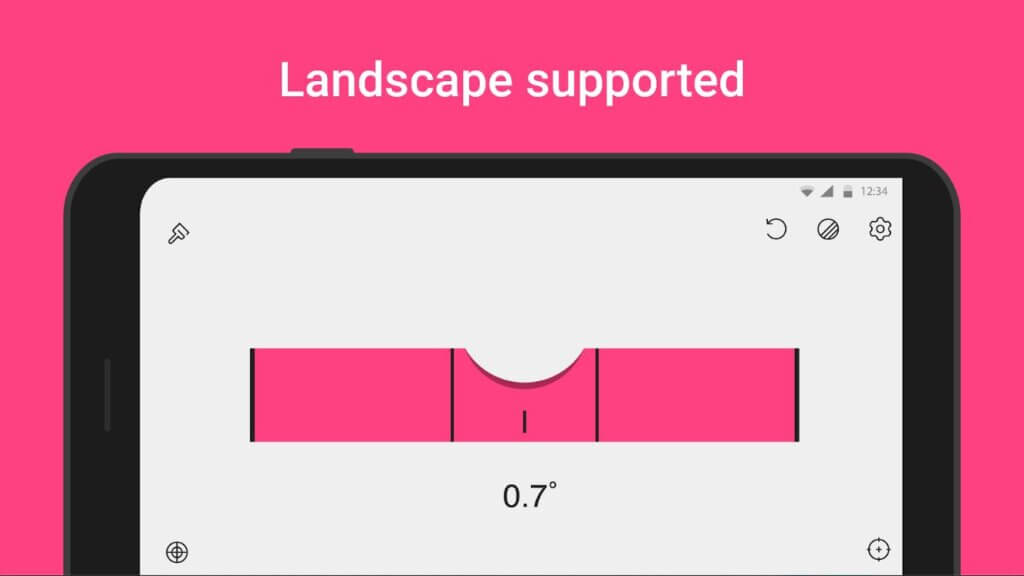Between 18 and 25 October the International Games took place on lake Garda, which is the unofficial World IQFOil World Championship. Unofficially, some countries did not have the option to travel to Italy due to corona restrictions in their own countries. However, there was a large turnout with 120 men and 80 women who could participate. After the official European Championships in Silvaplana last August, this is the 2nd IQfoil event that matters. In addition to putting in good performances, we were curious ‘where we stand’ in the international field as TEAM NL.
Not enough speed
On day 1 we quickly noticed that our speed was not high enough to keep up with the top group. We soon found out that we used a different shim/spacer than the faster guys. We then switched to the 0 degree shim on the second day after the marathon. This was special because in Silvaplana the +1 spacer was clearly much faster. This is possibly because in Silvaplana we had a much smaller lake and could foil higher angles which was an advantage overthere. Having a higher end speed was now much more important than necessarily getting as high as possible to the wind. Check, learned something again!
Angle of the foil
Besides the fact that there is a lot to be tested with shims, many countries are also adjusting the rake (the degree angle at which the foil mast sticks in the board) here it seems most advantageous to sail with a rake of 0 degrees and possibly when the very hard blows bring it a very small bit to the – degree. The effect of this is that with strong winds the tip of the board points slightly downwards, pushing the tip down slightly by the wind and speed. This compensates the lift in high winds (and speed), allowing you to keep pushing yourself. This form of tuning has been approved to be adapted by the class organization.
Trim of the sail
The standard extension of the HGO 9.0 m2 is position 24. Here, too, is clearly tuned. We saw that some French people, including Nico Goyard, foiled the sail on stand 26 block to block (completely tight). The British carried it a little longer (28) but left at least 3 fingers at the bottom. The choice to sail with a longer extension seems to be to bring more flex into the top of the mast, because you can also place your boom down a few cm due to the longer extension and that the mast becomes longer, so that over the total length the mast gets a little more flex. This should have an effect on the response of your sail and how the sail pumps, for example.
The contest itself
The match system was already a lot better than in Silvaplana. For example, we had course races every morning and there was a marathon in the qualifiers. This was very cool to see, the chicks got a 10-minute lead and then it was a kind of catch-up race for the men. Because everyone was foiling at the same time, the entire Lake Garda was filled with red sails, which gave a nice picture at the top mark.
However, there were some problems in the race committee this event, so not everything went fairly. On day 3 of the qualifiers, for example, the wind was too soft in one race, even though the entire front group was just foiling and only about 10 men were not foiling because they had sailed themselves into a windhole. Also on the 1st final day there was a slalom elimination cancelled after the race had finished and the windsurfers from that heat were allowed to start again. This shouldn’t normally be the way it should. Everything seemed to be in favor of the PWA riders who participated. This was confirmed on the last day when a British coach had captured video of a start in which you could see that some PWA riders were 10 metres over the start line and were not disqualified, how could this happen? On the pin-end boat were also PWA riders. They were not allowed to go on the water in the following races.



My results
During this event it became clear that there is still much to learn about the equipment and how important this is. The guys who know the most about their gear are going the fastest now. I’ve shown some varying results myself with crashes in a few races. It’s going so fast and the field of riders is so close together that every mistake is punished harshly. I ended up 40th overall and 3rd U19.
Measuring the angle of the foil mast
The angle of the foil is measured as follows; If the fuselage runs exactly parallel to the (back half) of the bottom of the board, then the foil has a ‘rake’ of 0 degrees. If you move the mast of the foil forward, the foil gets a negative ‘rake’. As a result, the nose of the board will point slightly downwards in the water. It is good to know that the foil always goes straight through the water during foiling.
There are nice devices for sale around the corner, to measure the angle of your windfoil. There are also good apps such as Bubble Level for measuring your smartphone around the corner.



